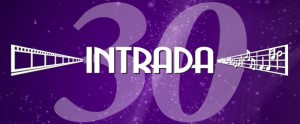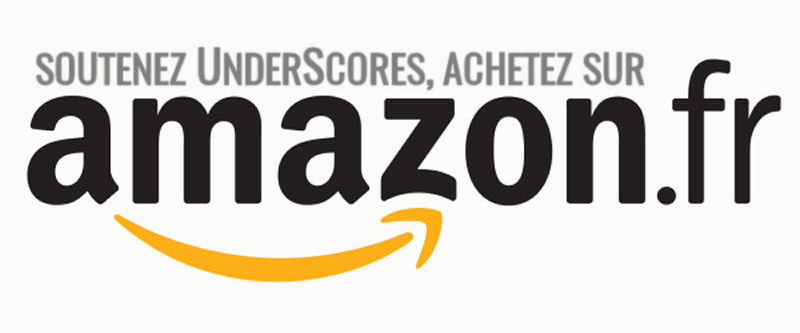In recent years, the activity of Intrada Records has increased beyond our greatest hopes. Such incredible releases as Alien, Baby or Honey, I Shrunk The Kids were real holy grails for many film music lovers. Those titles and many more are now available for all to enjoy, thanks to the Oakland-based label.
Roger Feigelson has a dream job at Intrada. Or that’s probably what everyone in the film music community would think of someone who is the marketing director and producer for one of the most important film music labels in the world. Well, the best way to know for sure was to ask him, and that’s what we did ! Roger kindly agreed to answer to too many questions with a good sense of humor, and gives us a fascinating viewpoint on his job and film music in general.
 How did you become marketing director, coordinator for album releases and producer for Intrada Records?
How did you become marketing director, coordinator for album releases and producer for Intrada Records?
I actually began as a customer in 1983, even before Intrada was Intrada. It used to be called Cine Monde and was part movie poster store, part soundtrack LPs store. A couple of years after that, the poster part moved to its own location, and Doug opened Intrada, coincident with the release of its first album, Red Dawn. I became a regular customer and friend and as I progressed in the business world, started doing some baseline marketing for the label, which eventually moved into business development : seeking out and negotiating agreements for the label. I call myself the « red tape guy », whereas Doug gets to do the fun part of actually producing the albums themselves.
Can you describe precisely your job at Intrada?
It’s seeking out projects to do, making contact with the licensors and establishing relationships with them, negotiating the licensing terms for the agreements and finding master tapes. Then I step out of the picture as Doug assesses and restores the elements, artistically assembles the album together and Joe Sikoryak designs the packaging. I come back into the picture for proofing the packaging, putting the announcements together, and setting up the mechanical licenses.
Can you explain to us what is the AFM? How does it work when you release a new score, an older score, and what does mean the recent « historic » changing rate? What did it change for producing soundtracks?
The AFM is the American Federation of Musicians. It’s the musician’s union. For many years, they required full payment of the orchestra costs if you wanted to release a soundtrack album. Of course, soundtracks are a limited market, so the costs rarely justified themselves and albums didn’t come out. In 1990 they changed the rule so that the « new use » fee, as they call it, was cut to 50% for any score recorded in 1990. That helped a little, but it didn’t do anything for older scores. Then in the early 90s they introduced a historic rate for scores of a certain vintage, which really amounts to a per unit royalty, making many projects that were prohibitively expensive much more reasonable. They also introduced a new rate, in august 2005 I believe, where no new use was due on any score recorded after that date until 15,000 units were sold.
Why do you limit scores editions? How do you manage to decide one, two or three thousand of copies would be fine?
The releases are limited because frankly the audience for this music is very, very small. The AFM only gives the historic rate for releases 3000 and under. Numbers below that are based on our best guess of what we think the demand will be.
What are your relationships with the other labels?
We have cordial relationships with these guys. We don’t talk on a daily basis, but we’re all interested in getting this music out there.
Which titles were the bestselling titles in Intrada’s history? And the worst sellers?
Tombstone was probably our biggest success. Silverado did well. Alien is doing quite well. As for worst sellers, that’s not the right question to ask. A title that sells a small number of units but has low costs could be more profitable than a bigger title that moves quickly, but has higher costs. There is no bad seller as long as there’s a profit. So the worst seller in terms of units could be the most profitable!
Intrada just announced today the score from One Little Indian by Jerry Goldsmith. How did you get this one?
One Little Indian happened because we were able to restart our working relationship with Disney (whom we worked with on Night Crossing, Honey I Blew Up The Kid, and Homeward Bound), and the two remaining Goldsmith titles in that catalog were of high priority to us: Baby and this one. One Little Indian is one of the last major scores from Goldsmith 70’s catalog that was yet to be released. We can check that one off the list. Jerry Goldsmith remains my favorite film composer and was really a film music titan.
You also just released Les Baxter’s Master Of The World and Goliath And The Barbarians. You have unexpectedly discovered new material when you started the project. How did it happen ? Is it common ?
Every project is different. But on the tapes marked Goliath And The Barbarians, which was loaded with pop music that had nothing to do with Goliath, we found 20 minutes at the end of the original stereo tracks from Master Of The World. Go figure.
What can we expect from Intrada in 2009?
A lot of stuff… The usual mix of Signature and Special Collection titles from our favorite composers, and a few new ones. I think you’ll see as varied a collection as you did in 2008…with a few more holy grails mixed in.
Which are your criteria to select scores you are about to produce?
I get enthusiastic about music I like, so I always try to go for projects I personally want to listen to. Doug is the same way. And we look at what people ask for and what would sell well enough to justify doing.
From a global point of view, how do composers react when you decide to produce one of their scores? Do they often agree to collaborate? How do you work with them?
There are all styles. Some composers want to be intimately involved in the process, which is wonderful, so we sit in the studio with them. Other composers are busy, so we send them a master to approve and they provide feedback if they feel it is necessary.
Did you ever release scores in order to please the composer, even if you would not do it without him asking for it? Did the contrary ever happen, a composer asking you not to release a score?
Yes to both. We’ve done things for composers and studios as a favor because we like to support their efforts. And yes, John Williams was adamant about there not being a release of Sugarland Express.
From the moment you decide to produce one title, what is the modus operandi to secure the rights, to seek out for the masters, to remaster it, to get a good looking packaging, to find the right person to write the liner notes…?
We usually check if the rights are available and then seek out elements. These are the two biggest challenges. If we overcome those then we hope the elements are complete and in good condition. Pass all three of those tests, and it’s all easy from there. Unless there are thirty reels of music to sift through to make a coherent album. But that’s Doug’s problem, not mine.
When you don’t produce every note from a score, how do you decide to choose the tracks that will be on the CD?
Generally we try to include everything, but if we truncate it’s because things are so short or just add padding that would take away from a strong listening experience.
When you’re producing a complete score, is it a good thing that a previous edition does exist?
It’s always nice to be able to revisit and do a definitive addition of something, whether or not we had done the previous release. It’s only a bad thing if we lose sales because someone is satisfied with the previous release. But even then, that loss is made up with new buyers.
When Intrada is producing Cds of new scores, like The Tale Of Despereaux, or rerecordings like Spellbound, how are you involved? Do you go to the recording sessions?
We did attend and were instrumental in the work on Spellbound. We did not attend the recording of The Tale Of Despereaux, but that project was just like all the catalog projects in how it was managed.
Did you fail to produce some projects that you cherished?
The Salamander, Volunteers, House Of Usher are just a few that I really wanted to do, but the master elements are missing.
Which part did play the influence of Internet on your job?
It makes it much easier to reach and inform a large number of people globally about our releases.
Is it easier of harder to produce scores today than 15 or 20 years ago?
With the changes in the new use policy, it’s much easier now than 15-20 years ago. Plus the Internet is critical in moving product.
So far, what is your best memory from your career? And the worst?
I’m going to stick with the first album I was involved with, in 1987 when Doug and I went to LA to work on Extreme Prejudice. The label was young then and it was all still a new frontier. My worst experience is usually dealing with licensors who just aren’t interested in exploiting their property. Trying to get a license on Elmer Bernstein’s Slipstream has been inexplicably impossible.
What are your own holy grails, unreleased, in film music?
My top two are both by James Horner: Something Wicked This Way Comes and The Journey Of Natty Gann.
It’s not easy to know how many people are found of film music in the world. In your opinion, how many are they?
Probably no more than five thousand.
Intrada’s staff, from left to right : Jeff Johnson, Joe Sikoryak, Douglass
Fake, Roger Feigelson, Richard Hauserman & George Champagne
Interview prepared by Olivier Soudé in association with Olivier Desbrosses.
Interview conducted in April 2009 by Olivier Soudé.
Thanks to Roger Feigelson for his kindness and availability.













